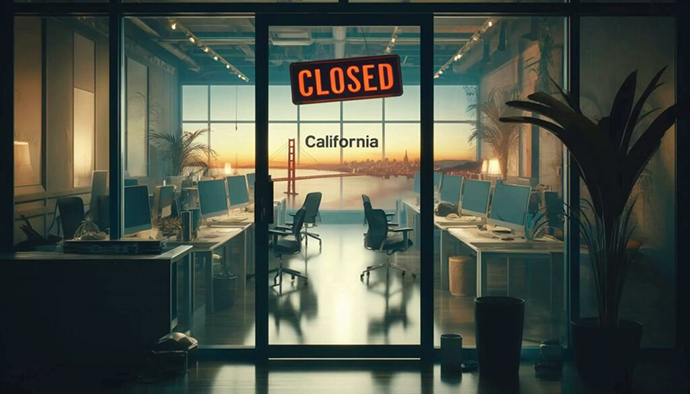New here?
The WC is a selection of five useful, interesting & notable insights, handpicked by our CIO Wyatt Cavalier and pumped into your inbox every Wednesday.
Let’s go!
Table of Contents
The greatest art gallery
There’s a collection of art in Geneva valued at more than $10B. It’s thought there are over a million paintings, and the facility is the size of 30 football fields.
There are similar sites in Luxembourg, Monaco, Singapore, Zurich, Beijing, and … Delaware.

These sites are called free ports, and they’re a remarkable economic invention.
A free port facilitates “the temporary exemption of taxes for an unlimited quantity of time.” Put another way, it’s a giant warehouse used to stash art, antiquities, wine, gold, jewels, and other priceless artifacts and never pay tax on them.
They exist outside the formal jurisdiction of any country; the clients remain anonymous and the assets are kept a secret.
And though you may have never heard of free ports, they’re a big deal in the art world:
- 28% of artists and collectors have used a free port;
- 42% of dealers and brokers say their clients use them.
Why use a free port?
If you buy a $10m painting from a dealer in France and want to bring it to the US (or anywhere else, really), you’ll have to pay import duties as high as $2m – $3m. Storing it in a free port gets around this. For around $1,000 per month, you’ll never pay those import taxes on your van Gogh.
Moreover, when it comes time to sell your piece, you can skip sales tax via the free port’s informal economy. The crate moves from your unit to the buyer’s unit, and the money moves from her Swiss bank account to yours.
The downside is you’ll never see those sunflowers hanging on your wall.
Dig deeper into free ports and the shadier side of art:
- The Art of Money Laundering
- The Role of Free ports in the Global Art Market
- Geneva Free Port: The World’s Most Secretive Art Warehouse
Where’s all the good reporting on startups?
When it was founded in 2005, TechCrunch was the bleeding edge of startup and venture news.
It was the place to go for a (relatively) unbiased look at what was going on in Silicon Valley. But accusations of ethics violations and declining editorial content have seen the site’s traffic and popularity plummet over the last ten years.

And that’s left a sizeable gap in the market.
Angel investors, LPs, GPs, and founders are desperate for quality news and analysis of what’s going on in Silicon Valley (and, increasingly, elsewhere).
A number of related (and/or startup-adjacent) sources have popped up over the last few years:
- Acquired (podcast) — the stories behind the companies you love;
- The Generalist — weekly deep dives into a tech or crypto company;
- Not Boring — company deep dives and other random stuff;
- Newcomer — deep dives into the inner workings of the startup industry;
- The Information — the original new TechCrunch. All paid content.
But there’s a new breed of players coming into the space that may hit the spot:
- Bulletpitch — a tight five-minute read covering the bull and bear case for one startup every week;
- KingsCrowd — a massive database of startups raising money (includes a proprietary scoring system);
- Contrary Research — a weekly digest on the best private tech companies;
- Alts — deep dives into startups raising rounds.
While all the above bring something to the table (Bulletpitch is particularly inspiring as a business), it feels like the space is still missing something. Perhaps that’s because covering the space is so difficult.
If you’re in this space, do you agree? Is there a gap? What do you want to see?
Dig deeper into startup journalism:
- The complete history and strategy of Stratechery
- 20 startup news sources (some of which you may not already know)
The long arm of Chinese law
According to reports, there are over 110 illegal Chinese police stations scattered across 50 countries.
These stations are used (in addition to legitimate purposes) to track down foreign dissidents and “persuade” them to return to China. They’ve “persuaded” nearly a quarter of a million dissenters to return over the last seven years.

Beijing set up these stations because most countries won’t honor extradition requests for dissent.
Wang Jingyu, a dissident who fled China after being targeted for social media posts and was granted asylum in the Netherlands, claimed he had been threatened and sent harassing messages by the Rotterdam station to make him return to China, with his parents who remained in China being targeted.
Before the explosive reports at the end of 2022, many of these stations operated without the host nations’ knowledge or consent. Some nations, like Italy and Croatia, actively supported Chinese efforts. Since the reports, a number of nations have cracked down on these stations. They’ve been orderedclosed in Holland and Canada, and the FBI raided a site in Manhattan in January.
Dig deeper into these illegal Chinese police stations:
- Patrol and Persuade: A follow-up investigation to 110 Overseas
- In Brief: China Has Police Stations in the U.S.?
A reason to rewatch The Core
There’s a solid metal ball 3/4 the size of the moon at the center of the earth. It’s nearly as hot as the sun, and it affects everything from climate, the length of our days, to the amount of radiation that reaches the earth’s surface.
And as of 2009, it’s stopped rotating, and it will soon reverse direction.
Because it’s 3,000 miles below the earth’s surface, it’s hard to know exactly what’s going on down there, but scientists think the core actually operates in cycles. Sixty years rotating west, ten stable, seventy years rotating east, and so on.
The scientists at the heart of the discovery assure us it’s totally normal and cool, but I’m going to rewatch The Core and brush up on my “nuke the earth’s core” skills anyway.
Dig deeper into the earth’s core (metaphorically only, please):
- Multidecadal variation of the Earth’s inner-core rotation
- Has Earth’s inner core stopped its strange spin?
- The Mystery of the Earth’s Core Explained
Learn a language with me
And now for something completely different…
After living in Spain for two years, I’m getting serious about learning Spanish with Duolingo.

I think I’ll have more luck practicing every day if I do it with a group of people. If you’re already using the app to learn a language or would like to begin, you can join the little group I’m making. I’ll manage it via WhatsApp, and it’s open to everyone, regardless of which language you’re learning.
Without going overboard, I can add Alts swag for those with the longest streaks, those who make the most progress, etc.
Sign up for Duolingo here (free) and drop your email here if you’d like to join the group.
That’s all for this week.
Cheers,
Wyatt














